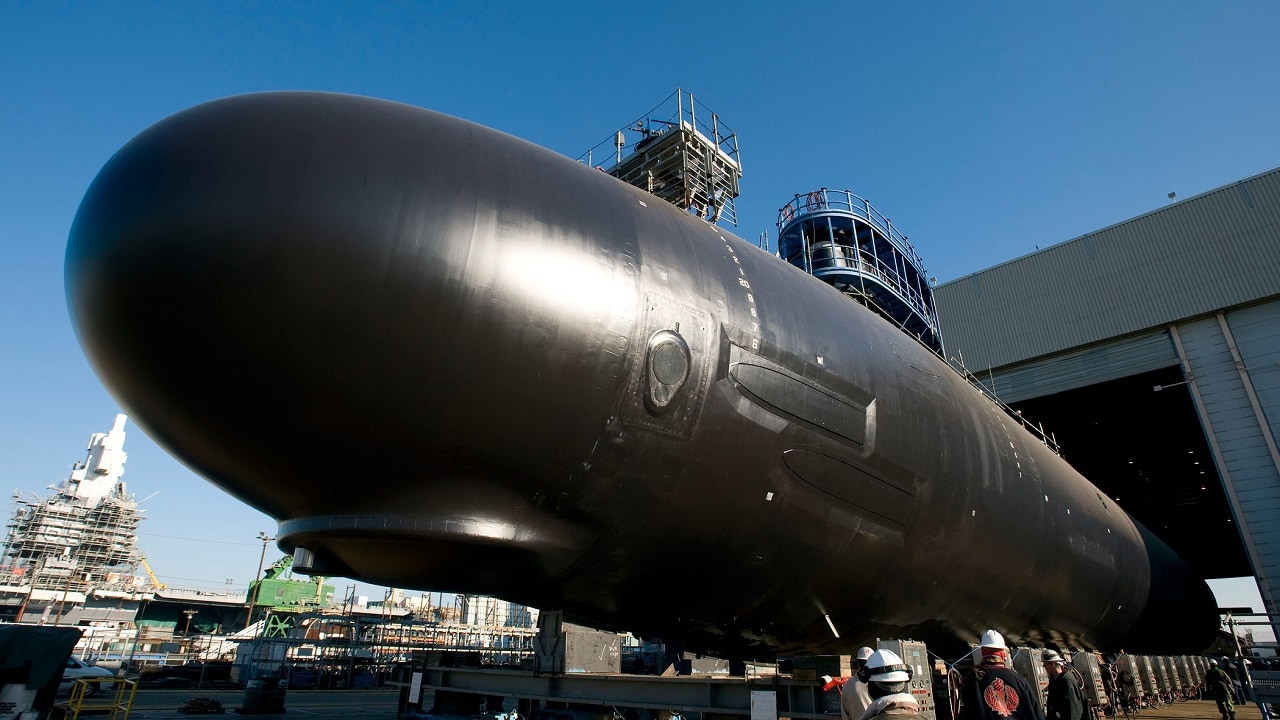The first of the highly anticipated Block V Virginia-class submarines are currently under construction in Groton, CT. The advanced warships are expected to improve over the Block I-IV Virginia subs significantly – and could remain in service until the 2070s.
The Virginia was initially designed as a cheaper alternative to the Seawolf-class submarine, which was cancelled after the completion of just three subs. The problem with the Seawolf was that the thing just cost too much – $2.8 billion per unit. By comparison, the Virginia costs just $1.8 billion. Both boats, the Virginia and the Seawolf, were meant to replace the Los Angeles-class fleet, which had served venerably but has become outdated.
Already, 21 Virginia subs are in service, the majority of which are Block I-III. Three Block IV subs are in service, however, with two more launched and five more under construction. So, the Block IV is essentially cutting edge, while the Block V is about adjusting for the future. Specifically, the Block V is being designed with one threat in mind: the growing “missile gap” between the US and China in the Pacific region.
China’s missile buildup a concern
China is currently engaged in one of the most ambitious military build-ups ever; China’s navy, air force, nuclear arsenal, and conventional arsenal are all being augmented. Simultaneously. China is making increasingly aggressive territorial claims throughout the Indo-Pacific region. To support the territorial claims, China has built the world’s biggest navy, bigger even than the United States’ own. And more concerning perhaps, is China’s advantage over the US with respect to cruise and ballistic missiles.
China has more missiles than the US; and China has missiles with greater range than US missiles. Actually, China far exceeds the US in terms of intermediate-range missiles given that the US was a party to the Intermediate-Range Nuclear Forces Treaty (INF), a Cold War pact between the US and Russia, which prevented the deployment of missiles with an “intermediate” range (between 500 and 5,500 kilometers).
China never signed the INF, however, meaning they could deploy intermediate range missiles however they pleased. Recognizing the growing missile gap, the Trump administration withdrew from the INF and began working to build and deploy more intermediate range missiles to the region.
The missile gap with China will be further exacerbated through the retirement of the Ohio-class submarines. But US war planners are hoping to offset the retirement of the Ohio with the introduction of the Block V Virginia.
The Block V’s Secret Weapon: Meet the VPM
To augment the Virginia’s conventional weapon payload, the Block V will feature a new design known as the Virginia Payload Module, or VPM. The VPM is a “hull plug” that can increase the boat’s payload. The result of the VPM will be that the Block V will be able to carry three times more Tomahawk missiles than the Block IV. By carrying more missiles the Block V will help to offset the concerningly wide missile gap in the Pacific.
And the VPM is being designed to accommodate future payloads, too. In theory, the VPM is revolutionary for the ease with which it can be reconfigured to accommodate the new technology – meaning that the Block V should be relevant for decades.
MORE: Joe Biden Won’t Send F-16 Fighters to Ukraine
MORE: Why Putin Should Fear the F-16 Fighter
Harrison Kass is the Senior Editor at 19FortyFive. An attorney, pilot, guitarist, and minor pro hockey player, Harrison joined the US Air Force as a Pilot Trainee but was medically discharged. Harrison holds a BA from Lake Forest College, a JD from the University of Oregon, and an MA from New York University. Harrison listens to Dokken.

